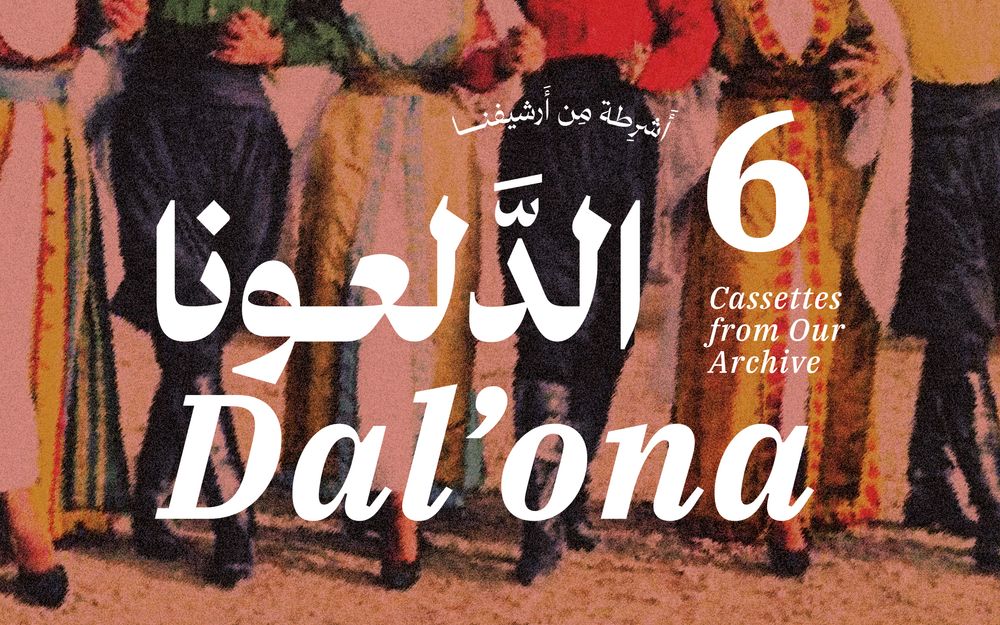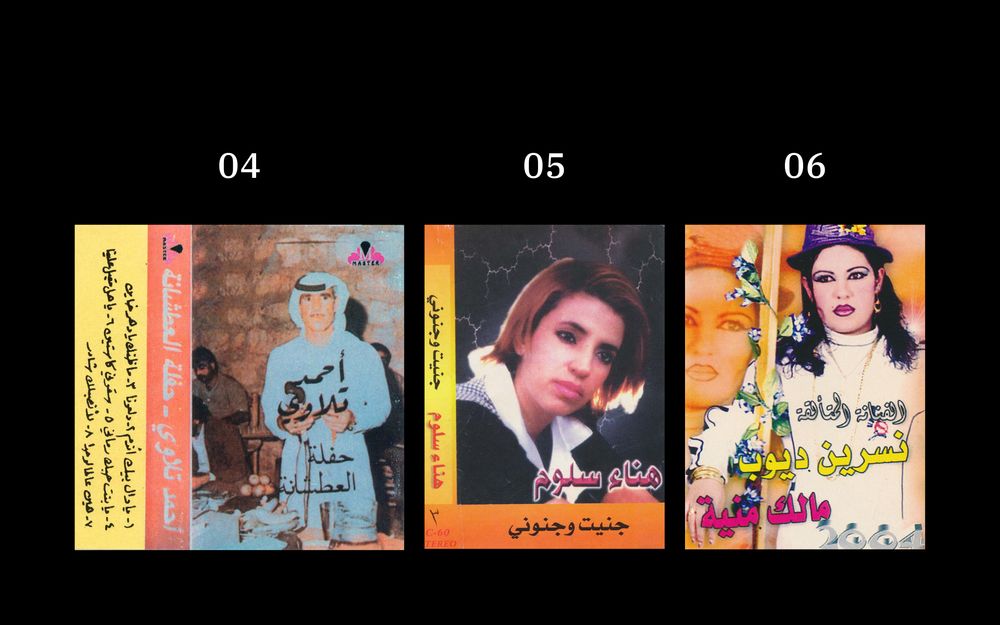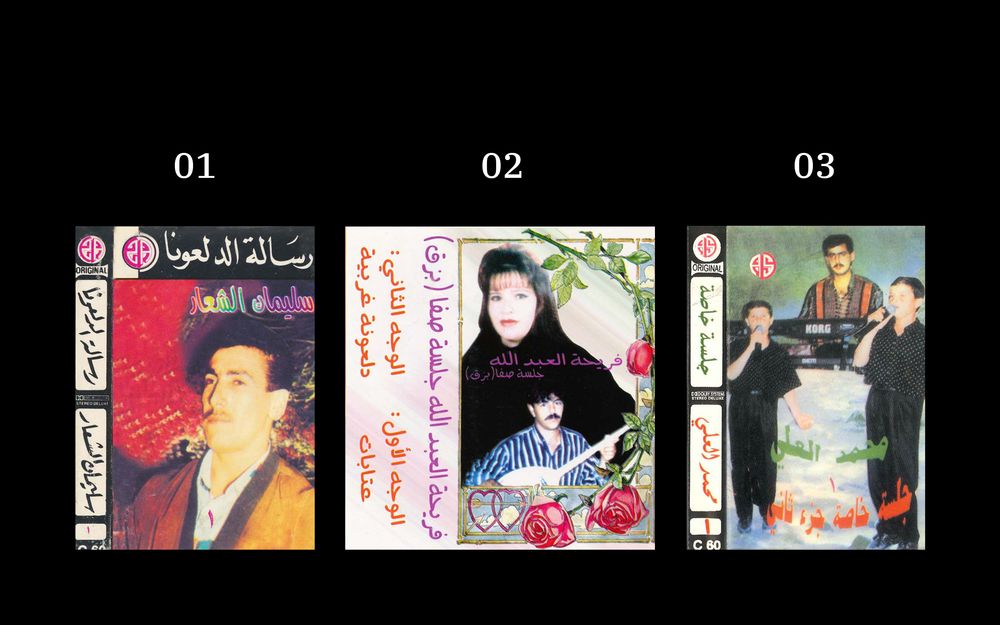


HIGHLIGHTS
Six Performances of Dal'ona From Our Archive
Suleiman Al Shaar – Risalat Aldal'ona (Dal'ona Letter)
Fariha Al Abdullah – Dal'ona
Mohammad Al Ali - Dal'ona
Ahmad Tilawi - Dal'ona
Hanaa Salloum - Dalli Dal'ona
Nisreen Dyoub - Dal'ona
Dal'ona is not just a traditional song; it's a song that has been rearranged, performed, and rewritten hundreds of times until it became a musical genre unto itself, achieving an influence and reach in the world of Arab musical heritage that perhaps no other single song has reached. Dal'ona carries a rich history that partly explains its overwhelming presence in the Levant region. Some attribute it to the word "dala’a” (pampering), as many of its versions are associated with addressing a loved one and seeking their affection. Others trace it back to a story about a young man who loved a girl named Anat, after the Canaanite goddess of fertility, love, and war. After he lost her, he kept calling out: “Delloni Ala Anat (Guide me to Anat)”, which eventually merged to become "Dal'ona". However, the most convincing account comes from the Syriac language, where the definite article is the letter "d" and the word "awna" means help. According to this account, "Dal'ona" originated from agricultural rituals in which farmers sought assistance from neighboring farms. They would request help by singing "Dal'ona." Another related narrative suggests that the Dal'ona dance has its origins in Syriac virgins dancing on grape seeds to press them and transform them into wine. The story of Dal'ona continued to evolve throughout modern history. In Palestine, the song became a code among revolutionaries resisting British colonialism and the Red Belt faction, a group of Arab fighters in the British army. Palestinians also sang it in the context of their war against Israeli occupation: "We don't fear the Zionist army / With popular war we've broken its nerves / The homeland is ours and we are its owners / Come on strangers, get out of here." Dal'ona is organized in the Saree’ meter of colloquial poetry. It consists of two lines, each composed of two hemistichs. The rhymes in the first three hemistichs are consistent, with the fourth hemistich ending in "ona." Additionally, the form includes an opening with two hemistichs: "Ala dal'ona ala dal'ona," followed by another hemistich in the same meter. Here we present six performances of Dal'ona from our archive, each carrying the spirit of the singer, the region, and the era it came from. Suleiman Al Shaar – Risalat Aldal'ona (Dal'ona Letter) In his version of the classic song, the Tartous singer Suleiman Al Shaar sends a message to his beloved in the form of Dal'ona. He tells us this at the beginning of the song: "From the land of exile, I'm writing a letter / Explaining to the samra (tanned) one what happened to me / God willing, it will reach the dear ones / And convey to their eyes my hidden longing." The song is distinguished by its beautiful contrasts: Al Shaar’s emotional voice is countered by a calm male chorus, while the synths plays a melodic and dignified role, diverging from their usual style. This is contrasted with intermittent frenzied ululations. Fariha Al Abdullah – Jalsat Safaa (Buzuq) (Serenity Session (Buzuq) Fariha Al Abdullah's version of Dal'ona, which the cassette cover describes as "Western Dal'ona", seems out of context. This is largely due to the minimalist arrangement based on Najah Al Shaarani’s buzuq, which gives the song a truly Western character as if it's being performed in a 1970s European bar from the avant-garde scene. The recording is as strange as it is captivating, drawing the listener into a state of trance, while Fariha Al Abdullah’s voice fluctuates over the lines of Dal'ona like rough waves on a stormy sea. Mohamed Al Ali – Private Session In the mid-90s, the child singer from Homs, Mohamed Al Ali, captivated many listeners with his sweet yet powerful voice, earning him the title of the 'miracle child.' For that brief period, he seemed to be following in the footsteps of George Wassouf, though his star faded as his artistic activity later decreased. The most prominent contribution Mohamed Al Ali offers to the Dal'ona song here is indeed, simply, his voice. His smooth, powerful tone, combined with a unique timbre, puts him in a completely different place from traditional Syrian shaabi singers. There's also a certain humor in his performance of lyrics that are more serious and street-wise than you’d expect from his young age: "And if your father refuses to give you to me / Come on, let’s elope, oh light of my eyes." Ahmad Tilawi – Al Atshana Party It can be said that Ahmad Tilawi’s version of Dal'ona is the closest to the original song, in terms of its association with a simple rhythmic and string arrangement, and its attachment to agriculture and rural life. The lyrics of this version paint scenes from rural emotional and social life: "The day I used to sit with her / The stars in the sky were congratulating us." Tilawi’s rough and rugged voice appears here in its finest form, resembling a farmer's weathered palms after a long day in the fields. Hanaa Salloum – Jannet W Jnouni (I Went Crazy) Unlike the slow and minimalist versions of Tilawi or Fariha, Hanaa Salloum presents us here with Dal'ona in its fastest and most flamboyant form. Her version is accompanied by a dense electronic arrangement that leaves just the space her voice needs, no more no less. That's enough for her to leave her mark on the song with a focused and solid performance – and a voice with a nasal timbre that lingers in the ear, both striking and infectious. Nisreen Dyoub – Malak Menya (I Owe You Nothing) Here we listen to Dal'ona in a typical contemporary Syrian shaabi music format, where Wael Sa'ad Al Deen’s loud and colorful synth almost overshadows Nisreen Dyoub's voice. She, in turn, sings in the style of a contemporary Syrian shaabi singer to the letter—marked by a distinctly rural dialect, lively greetings and interjections, and a bold, charismatic vocal delivery.
Ammar Manla Hasan
Ammar Manla Hasan is a Syrian music journalist and researcher turned blockchain head. Co-founder of Taxir, and former Editor-in-Chief of Ma3azef.